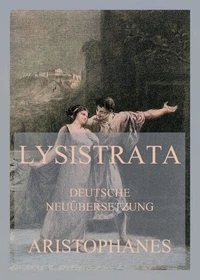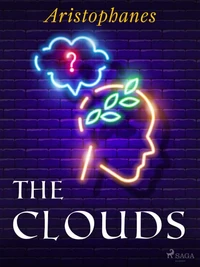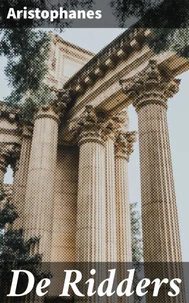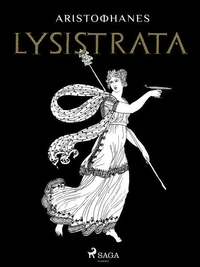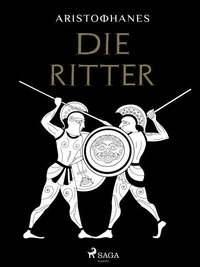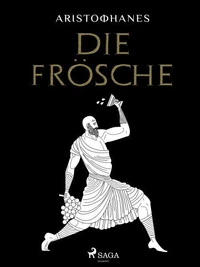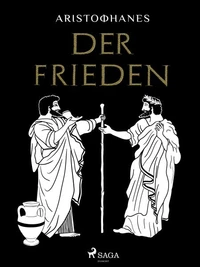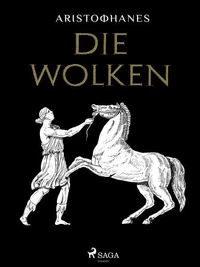Lysistrata
Par :Formats :
Disponible dans votre compte client Decitre ou Furet du Nord dès validation de votre commande. Le format ePub est :
- Compatible avec une lecture sur My Vivlio (smartphone, tablette, ordinateur)
- Compatible avec une lecture sur liseuses Vivlio
- Pour les liseuses autres que Vivlio, vous devez utiliser le logiciel Adobe Digital Edition. Non compatible avec la lecture sur les liseuses Kindle, Remarkable et Sony
 , qui est-ce ?
, qui est-ce ?Notre partenaire de plateforme de lecture numérique où vous retrouverez l'ensemble de vos ebooks gratuitement
Pour en savoir plus sur nos ebooks, consultez notre aide en ligne ici
- Nombre de pages111
- FormatePub
- ISBN978-3-98677-235-2
- EAN9783986772352
- Date de parution13/11/2021
- Protection num.Digital Watermarking
- Taille649 Ko
- Infos supplémentairesepub
- Éditeurcoolaij
Résumé
Lysistrata Aristophanes - Greek playwright, Aristophanes, lived during the 5th and 4th century BC and is considered one of the principal authors of the Greek classical period. Of the nearly thirty plays he wrote during his career, eleven are extant. Amongst the most famous of these is Lysistrata, a comedy which focuses on the women of Greece whose husbands have left for the Peloponnesian War. The women do not care about the conflict as much as they care about missing their husbands.
Its titular character, Lysistrata, insists that men rarely listen to womens reasoning and exclude their opinions on matters of state. In retaliation she convinces the women of Greece to organize a strike, refusing to have sex with their husbands until both sides agree to cease fighting. The irony of this is that the men become more upset with their wives than they do with their enemies of war. Notable for its positive portrayal of womens rationality in a male-dominated society, Lysistrata stands as one the most popular and frequently performed plays from classical antiquity
Its titular character, Lysistrata, insists that men rarely listen to womens reasoning and exclude their opinions on matters of state. In retaliation she convinces the women of Greece to organize a strike, refusing to have sex with their husbands until both sides agree to cease fighting. The irony of this is that the men become more upset with their wives than they do with their enemies of war. Notable for its positive portrayal of womens rationality in a male-dominated society, Lysistrata stands as one the most popular and frequently performed plays from classical antiquity
Lysistrata Aristophanes - Greek playwright, Aristophanes, lived during the 5th and 4th century BC and is considered one of the principal authors of the Greek classical period. Of the nearly thirty plays he wrote during his career, eleven are extant. Amongst the most famous of these is Lysistrata, a comedy which focuses on the women of Greece whose husbands have left for the Peloponnesian War. The women do not care about the conflict as much as they care about missing their husbands.
Its titular character, Lysistrata, insists that men rarely listen to womens reasoning and exclude their opinions on matters of state. In retaliation she convinces the women of Greece to organize a strike, refusing to have sex with their husbands until both sides agree to cease fighting. The irony of this is that the men become more upset with their wives than they do with their enemies of war. Notable for its positive portrayal of womens rationality in a male-dominated society, Lysistrata stands as one the most popular and frequently performed plays from classical antiquity
Its titular character, Lysistrata, insists that men rarely listen to womens reasoning and exclude their opinions on matters of state. In retaliation she convinces the women of Greece to organize a strike, refusing to have sex with their husbands until both sides agree to cease fighting. The irony of this is that the men become more upset with their wives than they do with their enemies of war. Notable for its positive portrayal of womens rationality in a male-dominated society, Lysistrata stands as one the most popular and frequently performed plays from classical antiquity



